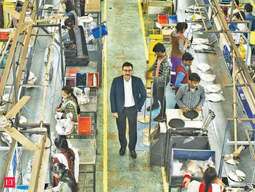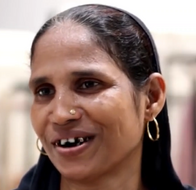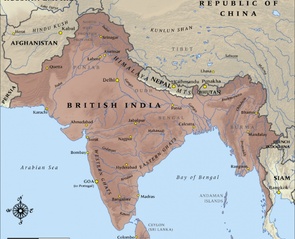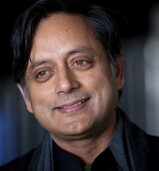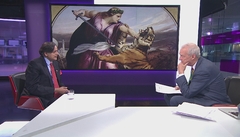-
Par gary johns le 12 Novembre 2022 à 10:42
A) Listen to the speech and complete part A of the worksheet
Télécharger « obama-opens-us-black-history-museum »
B) Read the text and do part B of the worksheet
A country which refused to offer respect or even basic humanity to African Americans is honoring black history in an extraordinary way. Yesterday former President Obama inaugurated the opening of the National Museum of African American Culture and History in the nation's capital Washington D.C.
Everything about the museum is bold : the mission, the collection, the $540 million dollar building inspired by ancient African art and designed by David Adjaye, a British architect born in Tanzania to Ghanian parents.
To say that the museum stands out is an understatement. Across the street from the White House you can find it on the green that surrounds the Washington Monument. The façade is a laticework of deep brown metal and is similar to the ornate gates and balconies of New Orleans which were mostly made by African American metalsmiths. "I wanted a building that spoke of resiliency, uplift and spirituality, but I wanted a building that had a dark presence too" the architect explains.
At their best, museums help us to understand and interpret our complex world by illuminating history and influencing attitudes. That becomes a challenge when we must examine our darkest episodes. Any society scarred by war, genocide, famine, displacement or slavery must decide what to remember and how to remember. Individual memory is one thing but this museum will be able to help define our collective memory. And collective memory, transferred from generation to generation, defines a nation's character.
National Geographic Magazine (Michele Norris, slightly adapted) October 2016
-
Par gary johns le 26 Octobre 2022 à 18:28

A) Read the article from the London Evening Standard
Tuesday 25 October 2022
King Charles III crowned Rishi Sunak as Prime Minister on a historic day for Britain.
His Majesty appointed Mr Sunak as premier, the first British Asian to reach the top job in UK politics and the youngest Prime Minister since the Napoleonic Wars more than 200 years ago. Mr Sunak's political coronation took place as he was the only contender to get the support of 100 MPs after Liz Truss resigned after just 44 days in office, becoming the shortest-serving PM ever.
The ex-Chancellor of the Exchequer headed to Buckingham Palce mid-morning where the King asked him to form a government. With the world watching the chaos in British politics which has seen three prime ministers in 50 days, US President Joe Biden hailed Mr Sunak's appointment as "a milestone" which "matters".
Mr Sunak, 42, is the first PM that the King has appointed, with his late mother Queen Elizabeth having seen 15 premiers during her 70 year reign, from Winston Churchill to Liz Truss. After the recent disatrous period at the heart of government and the financial turmoil that it has caused, former Home Office minister Victoria Atkins told Times Radio "We can be extremely proud of the fact that we now have a Prime Minister who has the character, the decency, the brains and the vision to do this job really well and we should also be quietly proud that he is the first British Asian Prime Minister that we will see work at number 10 as well."
Mr Sunak's grandparents were from Punjab state before the Indian subcontinent was divided into two countries, India and Pakistan, in 1947 after British colonial rule ended. His family settled in the UK in the 1960s and he was born in Southampton in 1980.
-
Par gary johns le 8 Octobre 2022 à 17:38
Click on the link to watch the video and do Activity A on your worksheet
-
Par gary johns le 4 Octobre 2022 à 15:34
Rt Hon Rishi Sunak was chosen by the majority of Conservative MPs to replace Liz Truss as the UK's Prime Minsister on October 25th 2022 thus becoming the country's first British Asian PM. Sunak has previously served as Chancellor of the Exchequer in Boris Johnson's government. His appointment as PM brings in new commitments and hopes for stronger India-UK relations. Indian Prime Minister Narendra Modi has rung to congratulate Mr Sunak. Both leaders discussed the improvement of bilateral relations, particularly in the areas of defence, people and trade and agreed on the necessity to reach a Free Trade Agreement between the UK and India before the end of the year.
Rushi Sunak on the India-UK Relationship
India’s bilateral relationship with the UK has been cordial for decades, thanks to the cultural and historical heritage that both countries share. This cordialilty in relations is expected to continue during Sunak's tenure, especially given his Indian parentage (the PM's parents emigrated from India to the UK in the 1960s). As Chancellor of the Exchequer, Sunak always called for stronger India-UK ties and has always considered India as a “big trading opportunity” for the UK.
Undoubtedly Prime Minister Sunak will face stiff challenges with the war in Ukraine, the rise in energy costs, and the internal social unrest caused by inflation. As a consequence, India-UK relations may not be his initial priority. But during his phone call with Prime Minister Modi he said that he was “very, very committed” to the bilateral relations between India and the UK describing himself as "a visual representation of the historic links between the UK and India". He said that he looked forward to negotiating a trade deal covering everything “from life sciences to technology and to agriculture”. He also mentioned that some of the “best and the brightest minds are in India”. And, evidently, he wants the UK to profit from these "bright minds". He will probably want to modify the visa system to make entry to the UK easier for Indians who want to invest in the UK's economy and who can enhance it. But this could pose a problem for Sunak : he may want to encourage entry to Britain for the "brightest" and "richest" of India's population, but he may not want to open the UK borders to too many poorer Indians who seek to improve their lives by settling in Britain.
How does India perceive it?
India looks at its relationship with the UK from a multi-dimensional perspective. ‘Trade’ definitely remains a priority but there are other domains as well where talks are already underway between the two countries.
In terms of trade, currently, UK is India’s 18th largest trading partner and in 2019 India became the second-largest source of Foreign Direct Investment for the UK. Both countries will now try to complete a deal to improve trade relations over the next decade. Commitments are underway to get a Free Trade Alliance deal before the end of 2022 (a target set by the previous government of Boris Johnson but which has been delayed by the political instability in the UK over the last months).
Apart from the trade relations, India is also looking at widening its areas of cooperation with the UK in the domains of education, health, technology, climate change, research and defence. Both countries are working towards extending the UKIERI (UK-India Education and Research Initiative) to bring research and people involved therein together. There are also talks underway between the two countries for collaborating on ‘clean energy’ as part of the climate change initiatives. The two countries are also looking at ways to ease the migration process for their nationals. These areas were already under consideration with the previous UK government and India is will be determined to see that they are not forgotten.
Towards a common defence strategy
Both the countries might also look at expanding their defence and strategic ties. The new Prime Minister will certainly want to work closely with India and other “freedom-loving democracies” to “build a global network of liberty”. This is evidently an attempt to create a strategic barrier againt the China-Russia alliance and to limit the economic and military dominance of China in Asia. The idea is that the UK and India could be the major partners in a military alliance of democratic countries across Europe and Asia.
-
Par gary johns le 1 Octobre 2022 à 11:04
A) Click to watch and listen about The East India Company
Télécharger « The East India Company »
B) Watch the news bulletin to learn why this man, Dr Shashi Tharoor, is in the news
Télécharger « Shashi Tharoor part 1 Channel 4 News »
C) Listen to the interview. What does Dr Tharoor think about future relations between India and the UK?
Télécharger « Dr Tharoor interview »
 Suivre le flux RSS des articles de cette rubrique
Suivre le flux RSS des articles de cette rubrique
Collège Jacques Prévert - Les Arcs sur Argens -



